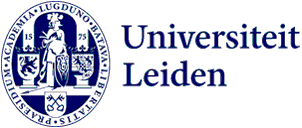
Remco Breuker makes documentary series about South Korea: 'The Netherlands and Korea are structurally related'
Professor Remco Breuker plays the leading role in the new documentary ‘Big in Korea’. Over three Sunday evenings, viewers can follow his journey through South Korea. How has the country developed over the past decades? And what is the impact of last December's failed coup?
Professor Remco Breuker's family has been celebrating Christmas with that of (culinary) journalist Hassnae Bouazza for years. About eight years ago, during one of those Christmas dinners, an idea popped up: shouldn't Breuker and Bouazza combine their interests for a documentary about the (food) culture of South Korea? ‘We developed that idea fully at the time and tried to sell it, but that turned out to be more difficult than we thought,’ Breuker recalls. ‘South Korea was less attractive to broadcasters than Japan or China.’
Getting started after all
When an attempted coup took place in South Korea last December, the tide turned. Breuker: ‘We were told that we could make a documentary after all, with a broadcast date in September.’ In Big in Korea, Breuker not only delves into the food culture, but also looks for changes in general in the country he first visited as a student in the 1990s.
‘One of the first viewers commented that I was still eating all the time,’ says Breuker with a laugh. ‘That's because food has a lot of cultural and even political significance, but basically, I visit both people who show how Korea has changed and old friends. I hadn't seen some of them in decades, so it was fantastic to return to them. At the same time, it was sometimes confronting to return to places I had visited as a 21-year-old student without any prior knowledge and to realise how much time has passed since then. Over the past 30 years, Korea has transformed itself from a sometimes underdeveloped area into a pioneer in all kinds of fields, from fantastic public transport to beautiful cities.’
Rapid development
This rapid development is central to the documentary. Breuker: 'In the first episode, we look at democracy. When it came under pressure last year, the Koreans took decisive action by taking to the streets and staging a non-violent protest involving two million people. In the second episode, we then focus on the democratic growth that the country has undergone since the dictatorship of the 1980s and show how remarkable it is that this has been accompanied by economic growth.’
At the same time, the documentary is not a ‘good news show’. ‘If you think your traditional birthday party is unsociable because of the political polarization here, you haven't been to Korea yet,’ says Breuker. ‘Many young men there are angry because they feel threatened and have no prospects. As a result, there are also many young women who feel marginalized and threatened and no longer want to conform to the will of men. In the third episode, we explore this polarisation, partly because Korea seems to be ahead of the Netherlands in this respect.’
Ahead of the Netherlands
In the Netherlands, we may mainly associate South Korea with K-pop and the conflict with North Korea, but underneath that lies a society that is very similar to ours. Breuker: 'In the Netherlands, little distinction is made between different types of Asians. Someone once said to me: “Koreans, Japanese, they're all Chinese.” In reality, the differences are enormous, and South Korea is perhaps most similar to the Netherlands in terms of structural problems. It is a small, modern country with a relatively highly educated population, without many natural resources, located between much larger neighbours. Trade and creativity are crucial for the country, which at the same time has a difficult relationship with migration. On the one hand, migrants are needed, but on the other hand, the population does not always want to let them in and deal with migration properly.’
One difference with the Netherlands is the pace at which society has developed in recent years. ‘As a result, the Netherlands is now facing problems that have been familiar in South Korea for ten or fifteen years. These include high housing costs, for example, but also what you might call the ‘Andrew Tate-isation’ of society. The Netherlands would do well to look to South Korea for solutions to these kinds of problems. Korea Studies isn’t exotic: the Netherlands has structural ties with Korea and it is worth learning more about the country.’
